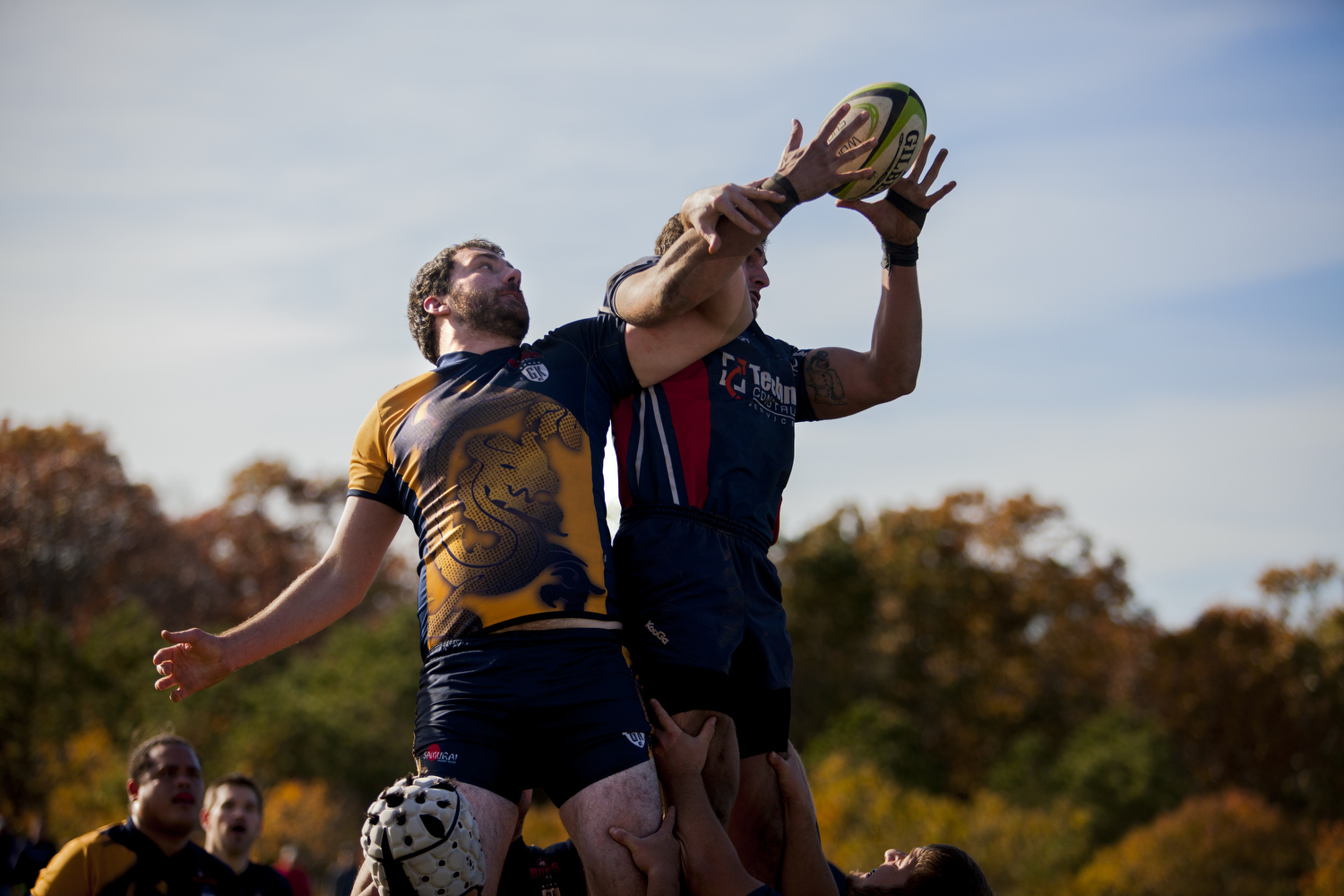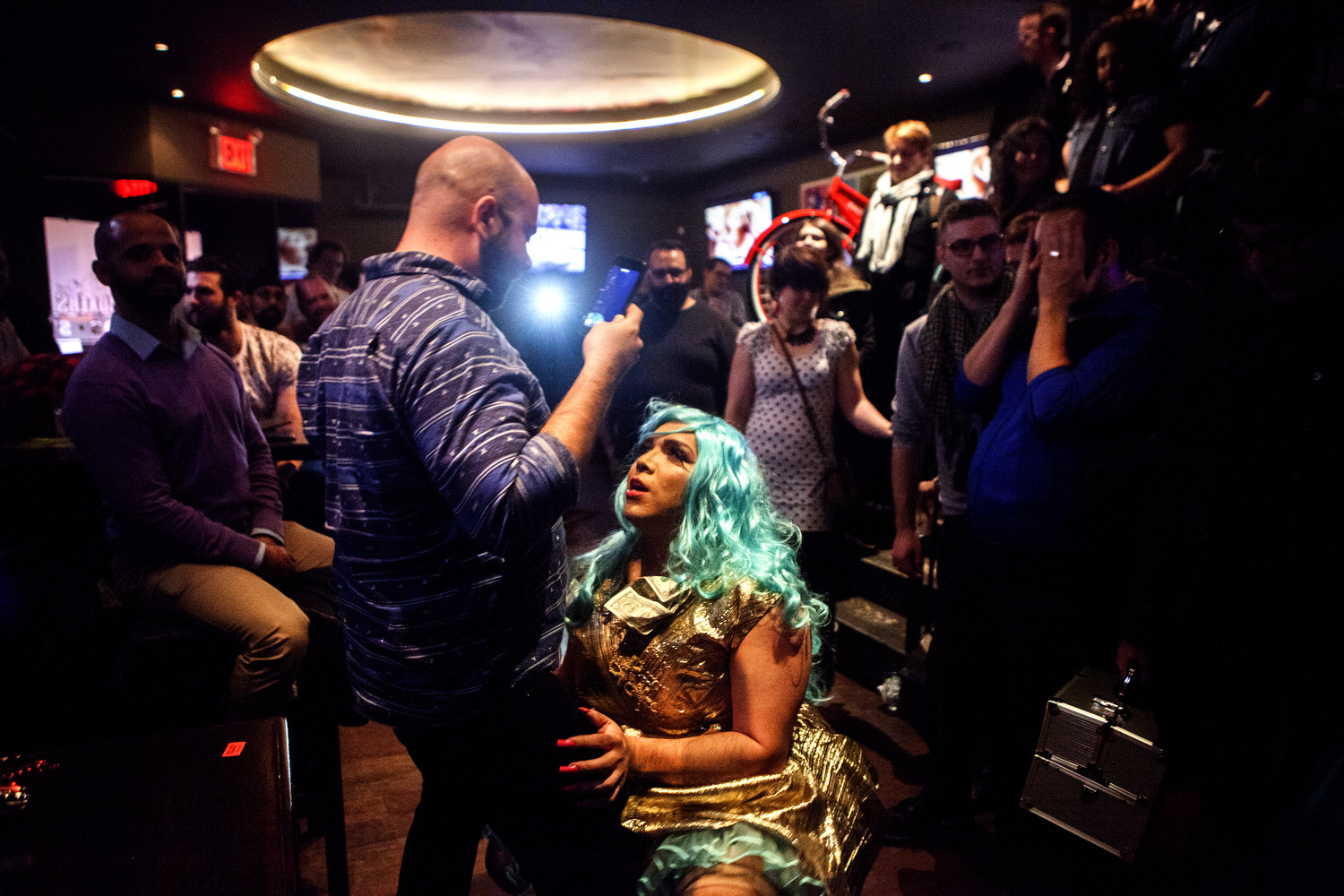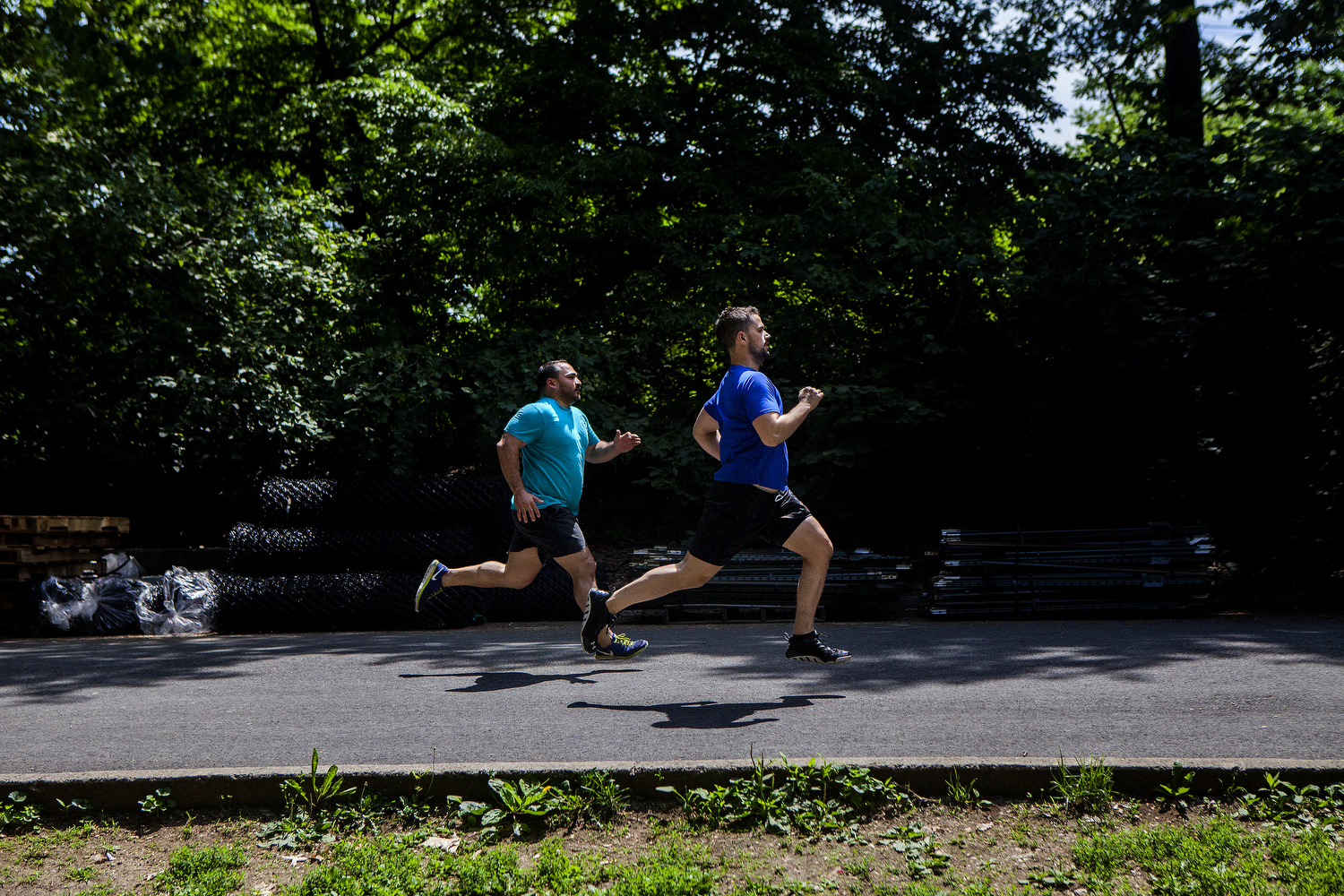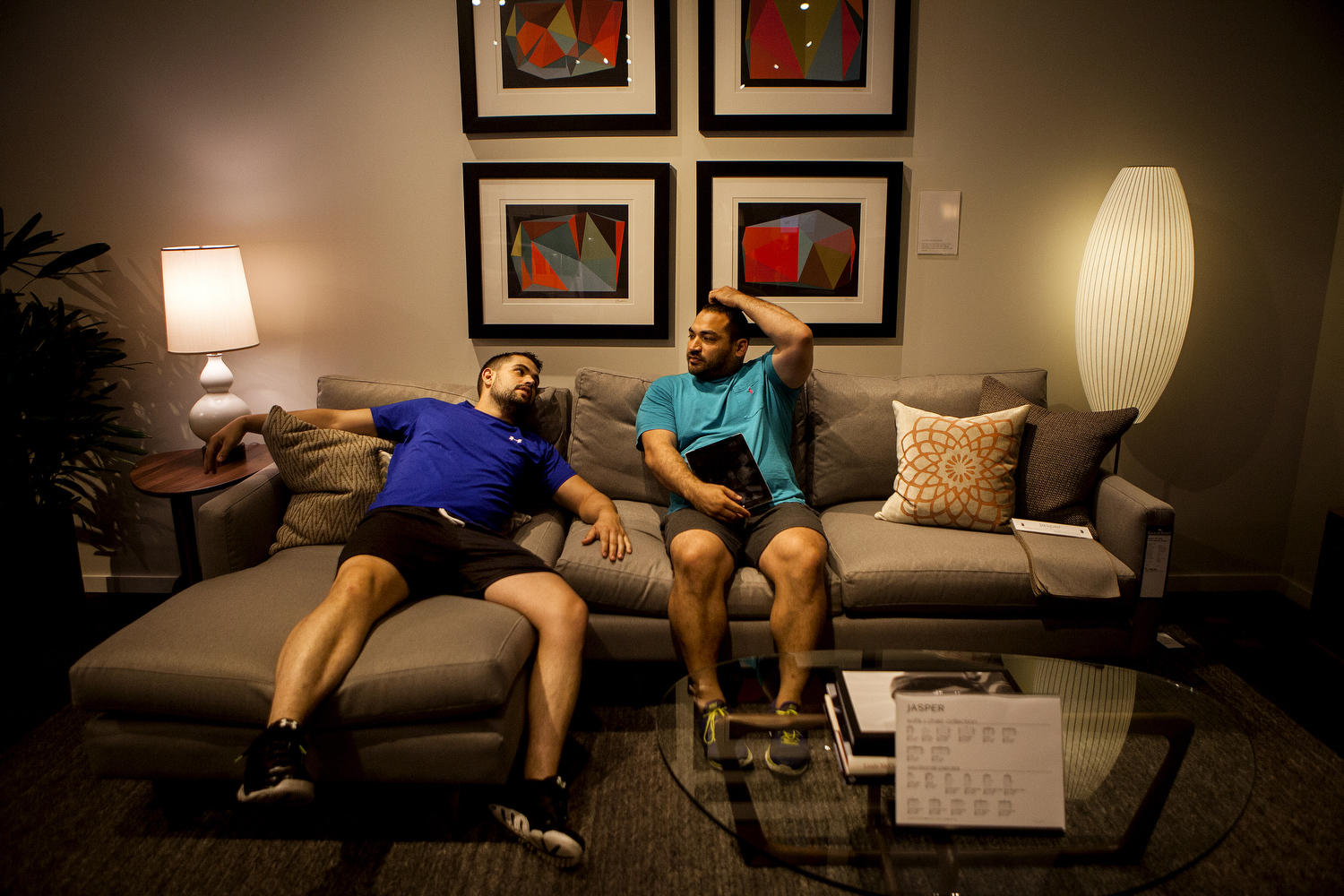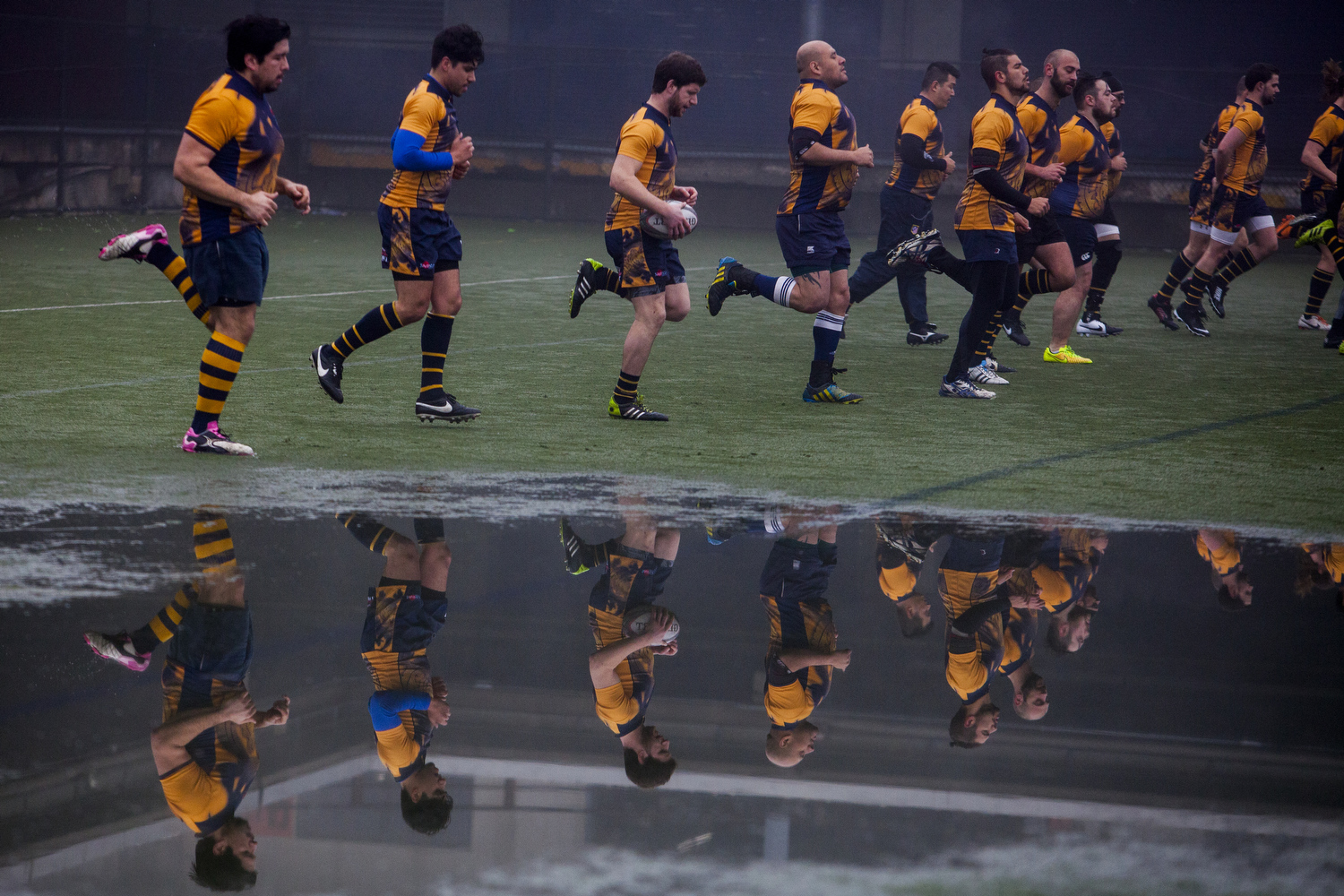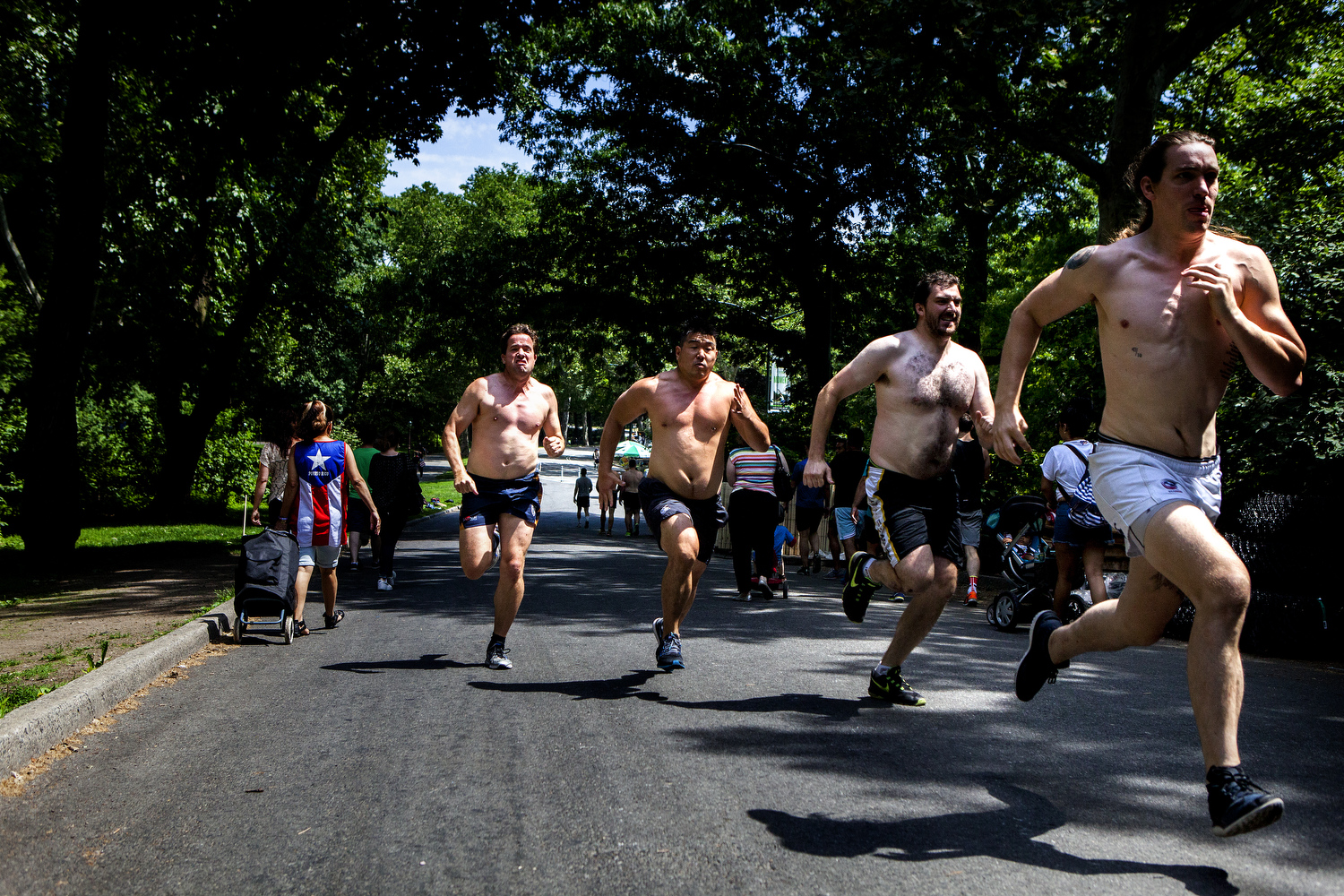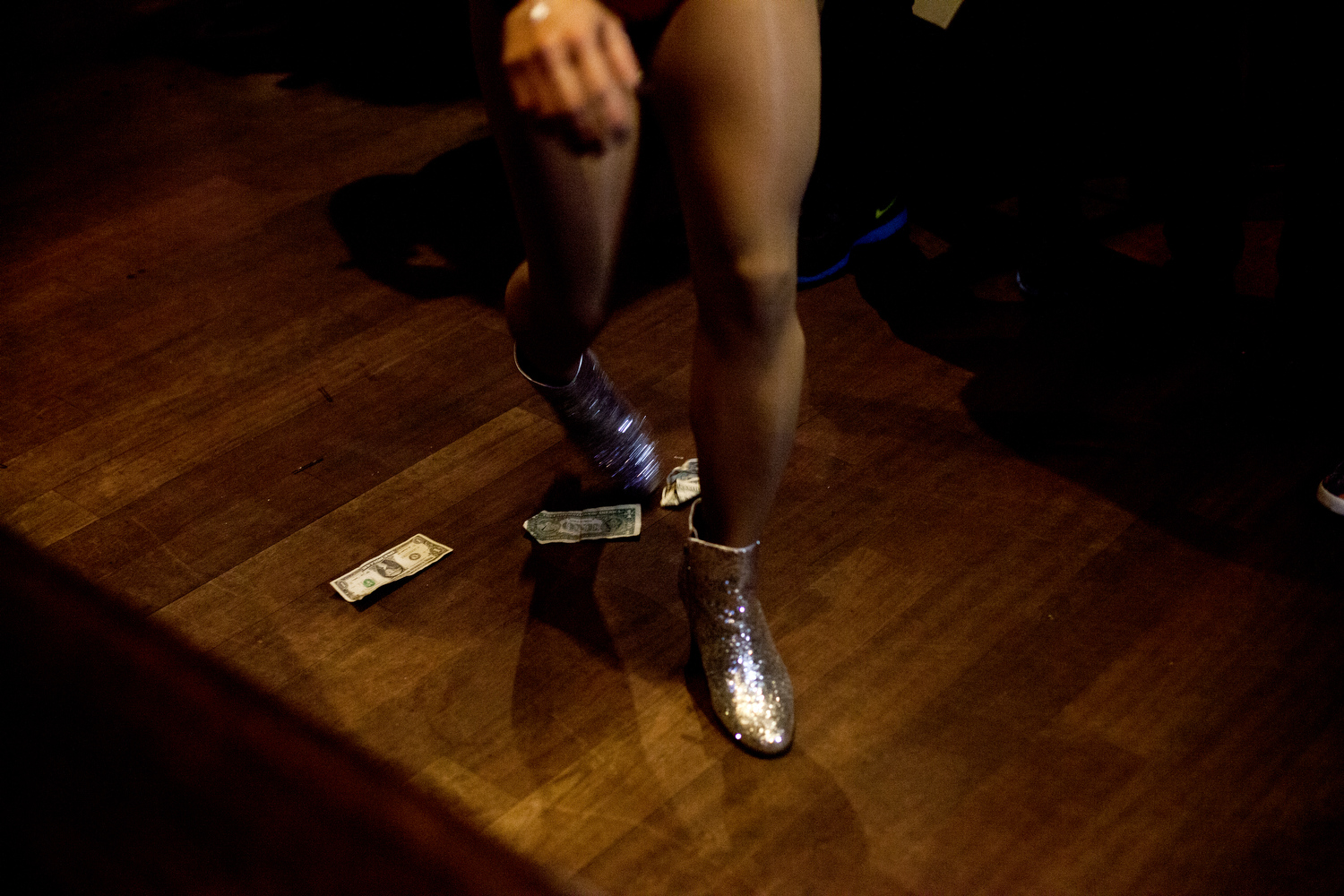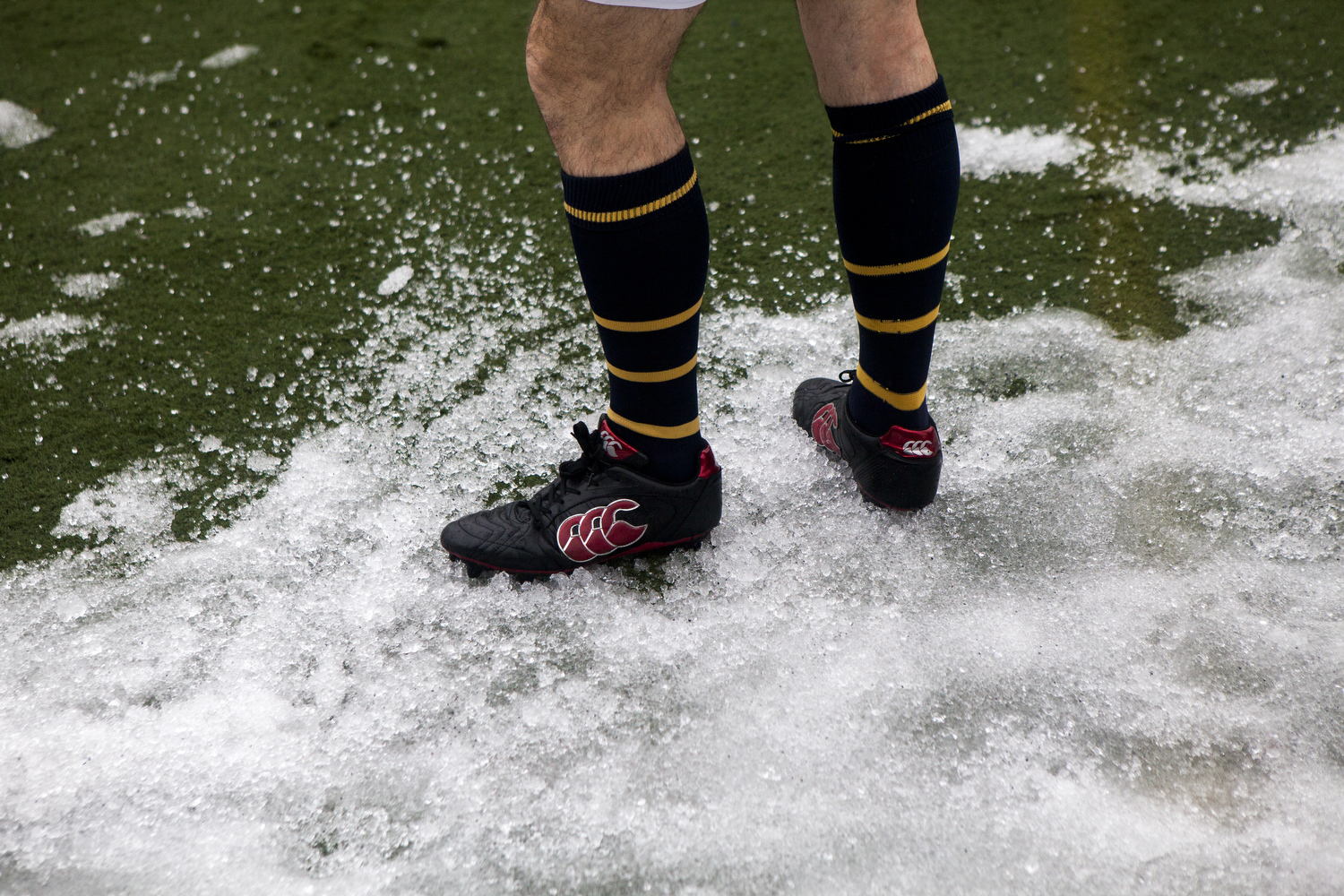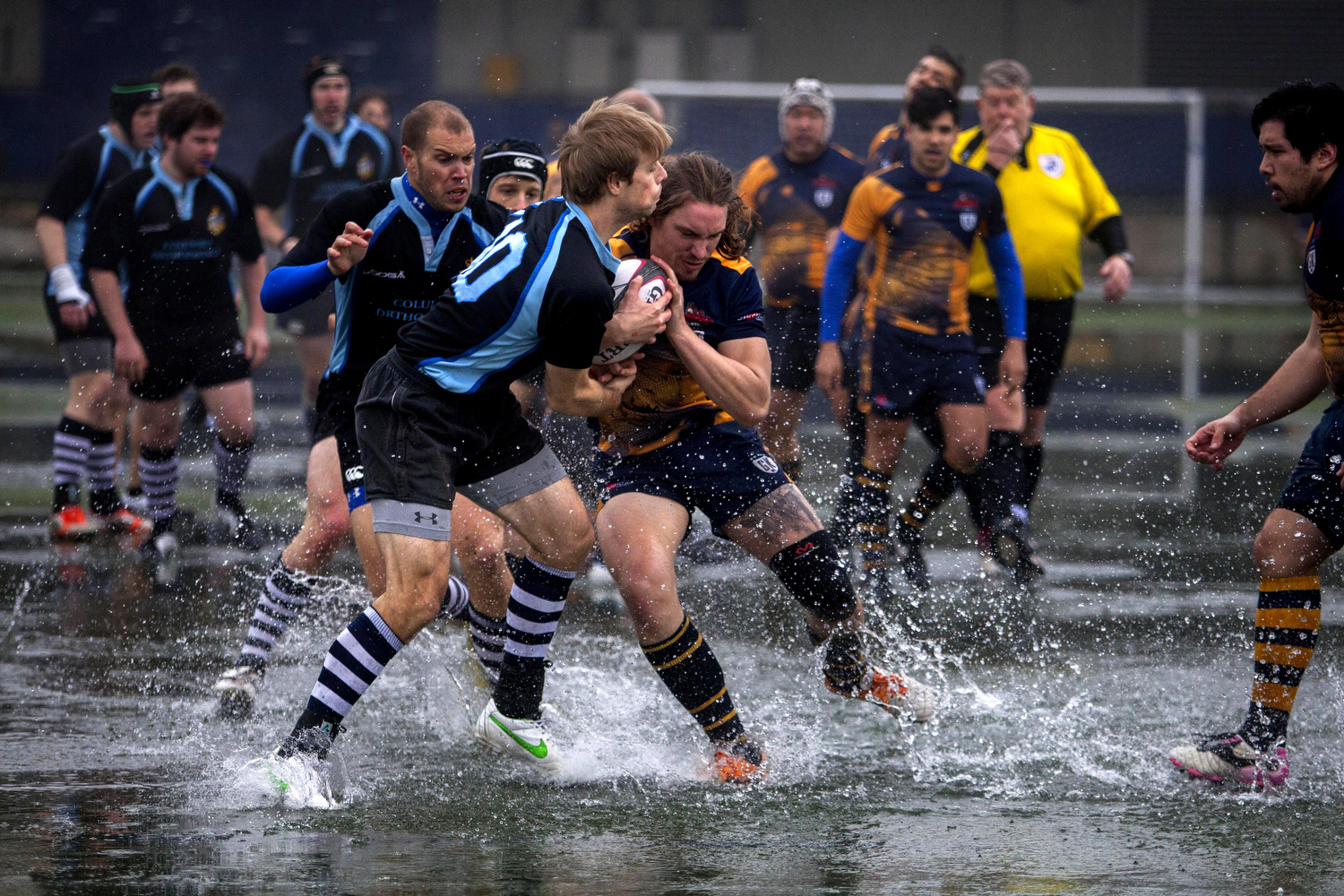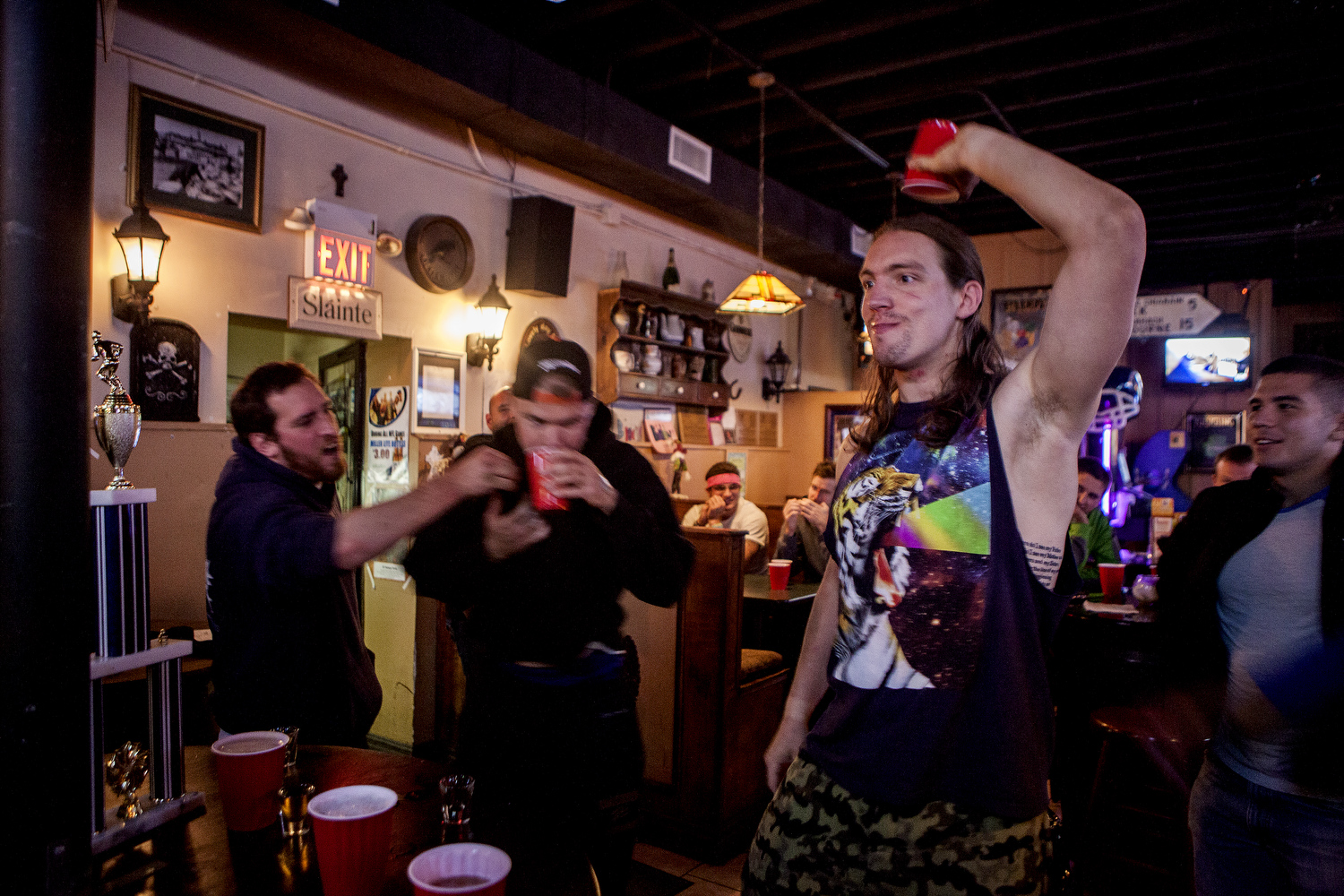NEW YORK, NY -- With his rugby teammates supporting him, Raul Huezo weaved through the crowd in full uniform, the thumping rhythm of “Burnin’ Up” by Jessie J pumping up those in attendance.
Huezo, a 5-foot-10 hooker for the Gotham Knights Rugby Football Club, was not about to smash heads with rivals on the team’s home field at Randalls Island. No, clad in a teal wig and a gold lamé dress, he was performing in drag at a gay bar in Hell’s Kitchen as part of a team fund-raiser.
“I feel like I can actually be the queen that I want to be,” said Mr. Huezo, who described himself as usually reserved and quiet. “By playing with Gotham, by playing this really big, macho sport, I fully embrace my more feminine side.”
For more than a decade, the Gotham Knights have done what American professional sports franchises seem to have failed at — fielding a team dedicated to inclusiveness. The team’s existence defies long-held stereotypes of gay men and provides a safe venue for gay athletes to be themselves and build community.
Jeff Wilson, chairman of International Gay Rugby, which has 55 member clubs from 15 countries, said that is a significant reason clubs like Gotham are important, even in tolerant cities like New York.
“By having teams that are gay and inclusive, they can change their local environment just by being who they are,” he said.
The Knights are focused on winning a second Bingham Cup, an I.G.R. tournament that draws clubs from around the world. The event and its trophy are dedicated to Mark Bingham, who died in the Sept. 11, 2001, terrorist attacks when United Airlines Flight 93 crashed into a Pennsylvania field after a cockpit struggle between passengers and the hijackers. Mr. Bingham had hoped to bring an inclusive rugby team to New York. Inspired, players formed the Gotham Knights.
Elliot Massuda, the club’s president, joined the Knights in 2010 after playing for the Chicago Dragons, also of I.G.R. He knew the team would be a source of camaraderie and friendship in his new home. What he did not know was that he would eventually date a teammate, Myles Soverel, who joined the team in mid-2014. By October, they were living together in Mr. Massuda’s apartment in Harlem.
Many of the Knights are not gay, including their captain, Clark Buden, who said playing on the team had made him a significant ally of the L.G.B.T. community. Mr. Buden was initially unaware of the Knights’ background. At his first practice, he noticed that some of the guys referred to others with the pronoun “she” and that one showed up late singing show tunes.
Mr. Buden turned to Mr. Huezo, whom he would eventually watch perform as Jessie J in drag, and said: “Hey, man, is this a gay rugby team?”
“Oh, honey,” Mr. Huezo replied. “You didn’t know?”
Mr. Buden was undeterred, and his integration into the club and its culture is an example of the Knights’ spirit of inclusion. Straight players like Mr. Buden are more than welcome in I.G.R., said Mr. Wilson, its chairman.
“If we have straight folks who believe in the mission we’ve got and will march alongside us in pride parades or act as activists along with us, it creates an environment where we’re more powerful,” he said.

